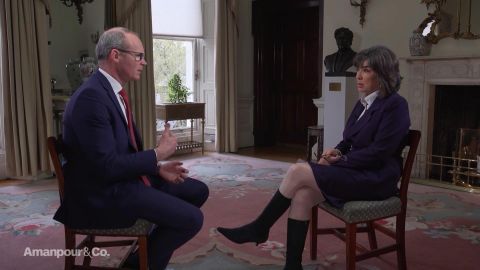Read Transcript EXPAND
IAN MCEWAN, AUTHOR, “MACHINES LIKE ME”: When I think, for example, of a reading list or literary canon — these are the books you should read. The whole point reading list is that it should be challenged. But the point of the challenge is you should be adding to it, not taking things out of it. So if you say there are too many white men — dead, white men on the list – – Conrad, Hemingway, et cetera et cetera — then you should be enriching it, not saying nobody is to read “Lord Jim” anymore because he has some attitudes that we don’t like. That would narrow your reading list down — there would only be Toni Morrison, which would be great in the way, but you really want diversity.
And the richness of possibility of the exchange of ideas is lost if you start banning speakers. Obviously, anyone who has got hate speech is another matter. But people who would disagree with you profoundly is all part of — I think, the managed excursion or the project of a university. So to quote my antihero, Chairman Mao, “Let a hundred flowers blossom.”
CHRISTIANE AMANPOUR: You have said, if it wasn’t for the women readers, the novel would be dead.
MCEWAN: Absolutely. My son and I once tried to give away free 400 books in a little park outside our house. We carried them out. And every woman we met said, “I read that. I read that. Oh, can I have that. Can I have three?” And any man we approached were, “No, sorry, mate. No, no. I don’t want to.” We couldn’t give one book away to a man. And that led me to the conclusion that without women readers, the novel would have died long, long ago. It probably wouldn’t even got started.
AMANPOUR: Who do you read? Who is your favorite novelist?
MCEWAN: I think the mental space of the imagination so far, so I resist the idea of hierarchy so much. But you know, I’m a great lover of the American half century, second half of the 20th Century, I think it will really was the American Century for writing. So, Updike was a wonderful figure who became a friend in the last seven or eight years of his life, I went to stay with him. And Saul Bellow, who I’m rereading at the moment. I know he’s got some great unfashionable views. But gosh, does he make the street sing.
I mean, just — “Chicago” just seems to hum and throb through those pages. That high, low quality of dealing with ordinary life and high end of power, intellectual exchange, all on the same page. Oh, sometimes within the same sentence and it thrills me. Very hard for us to do that in Britain. There is something still, I think joyous about the project, at least of classlessness in the United States that we do not have here.
About This Episode EXPAND
Christiane Amanpour speaks with Irish Deputy Prime Minister & Foreign Minister Simon Coveney about Brexit; and novelist Ian McEwan about his new book “Machines Like Me.” Michel Martin speaks with Anita Malik, a candidate for the House of Representatives whose background is in tech, about how she hopes to transform the traditionally conservative area.
LEARN MORE


